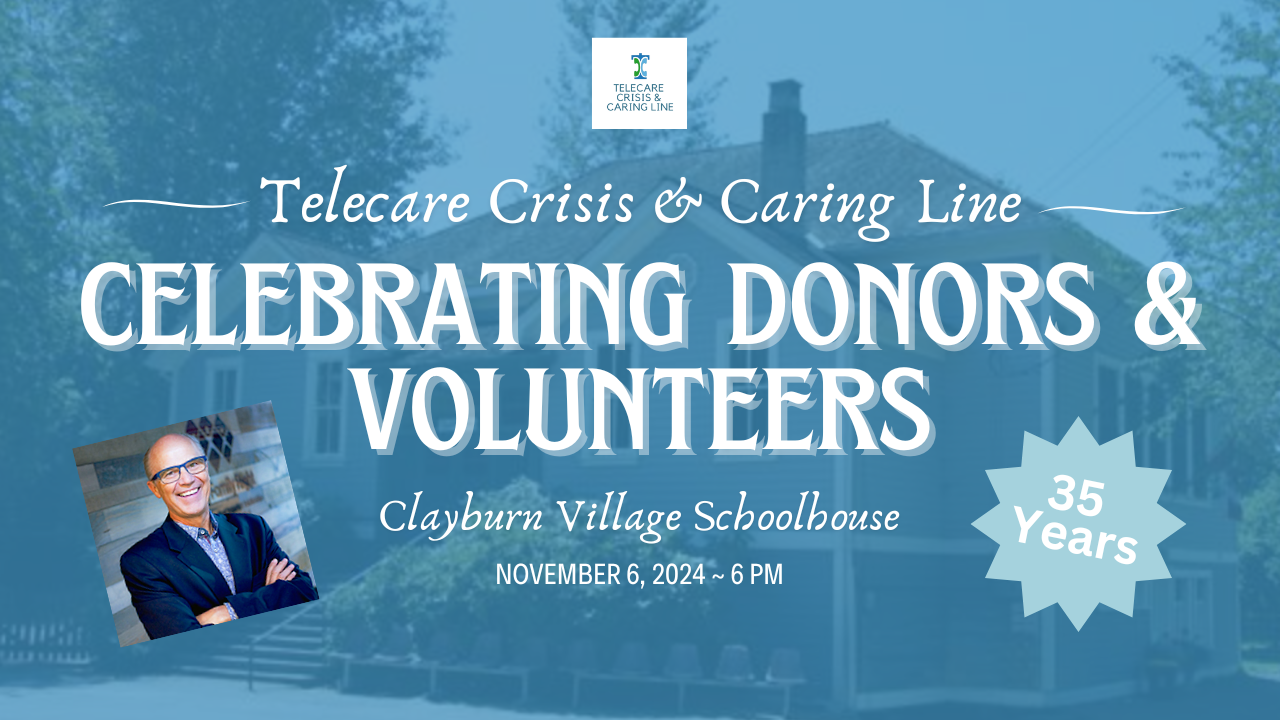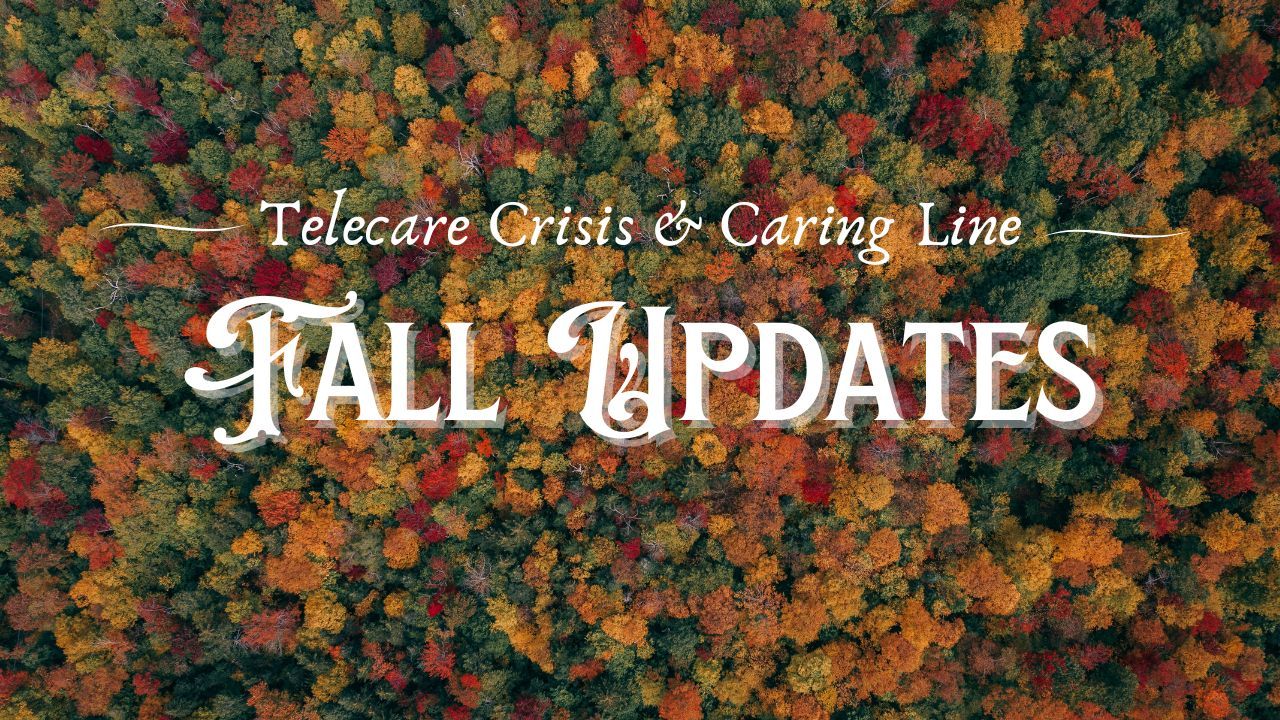PHONE FOR SUPPORT: 1-888-852-9099, 9 AM TO 9:00 PM, 7 DAYS A WEEK
Words to the Wise Helper: Supporting A Grieving Person
To live means to experience loss. Loss comes in diverse forms, from losing a cherished toy as a child, breaking up with one’s first love, being skipped over for a promotion, or death of parents. Loss will impact us throughout our lives.
With loss comes grief. Grief is a deep sadness for what has been lost and a profound longing to fill the
hole left behind.
Recently Telecare’s Executive Director Bill Strom joined grieving people who took part in a Memorial Walk sponsored by LIFE Recovery. The event was organized to remember victims of drug overdose and their mourning families and friends. At the invitation of Colletta Holmes, LIFE Recovery leader, Bill shared briefly on the topic of loss and grief and referred to the training materials used with our crisis line volunteers.
When supporting a grieving person, we are tempted to use well-intended statements that may in fact cause unnecessary pain. Such statements include:
- Asking the person, “Are you over it yet?” or “Do you feel better?” In a sense the grieving person will never get over the loss as it is not a condition that clears up. The grieving person will, over time, learn to live life in a different way without their loved one.
- Saying “You know he / she is in a better place” or “At least he/she is not suffering”. For a Christian it is a comfort to know that our loved one is with the Lord and pain free, but for the one left behind such statements do little to take away the emptiness or answer why this even happened.
- Saying “I know how you feel”. Each loss is unique and each person will grieve in their own way. We likely do not know how they feel really.
- Saying “At least you had him or her for so many years” tends to minimize the grief because it implies that one would not feel so bad if the person had lived longer.
- Saying “God never gives us more than we can bear”. This may be true, but for now there is a need to be sad and to cry. Don’t be afraid of tears, just let the grieving person talk about his or her loved one.
So how might we support grieving people better? Consider these best principles and practices for call
responders and people helpers:
- Be aware that each person’s grief work is unique to their personality and relationship with the deceased.
- Be ready to be a good listener. The grieving person may need to tell their story of loss many times.
- Be human. By being real and in the moment, we allow grievers the right to their feelings without judgement. Be open and humble to learn from them.
- Be sensitive in allowing the grieving person to experience their pain; don’t try to lighten the mood. Strong feelings may be expressed, and tears may flow, but do not back away from them.
- Be patient and understand that grief takes times. Do not attempt to hurry the grief journey by trying to force your timetable on them.
- Be realistic. Realize that supporting a grieving person may take more time, sensitivity, patience, and learning than you first anticipated.
Need Someone to Listen?
Remember, you're not alone on this journey. If you're seeking a compassionate ear and a heart that understands, we encourage you to call us. Support is just a phone call away. See below for information how to connect with us.
Discover Hope in Every Email
Join our community for uplifting stories, expert advice, and a path to healing.
Get the support you need
For Crisis or Emotional Support Call:
- 604-852-9099 in Abbotsford and Mission
- 1-888-852-9099 toll free throughout British Columbia
- If you are in a life threatening crisis, please call 911
Recent Posts
> End your Anxiety: A Prayerful Approach
> Renew your Strength – God's Promise to You
> Bible Verses that Help When You're Afraid | Telecare











